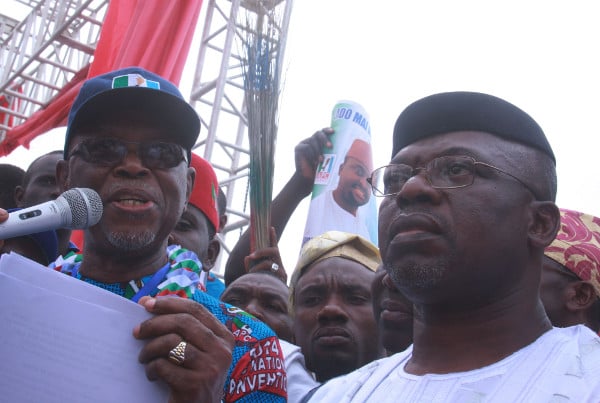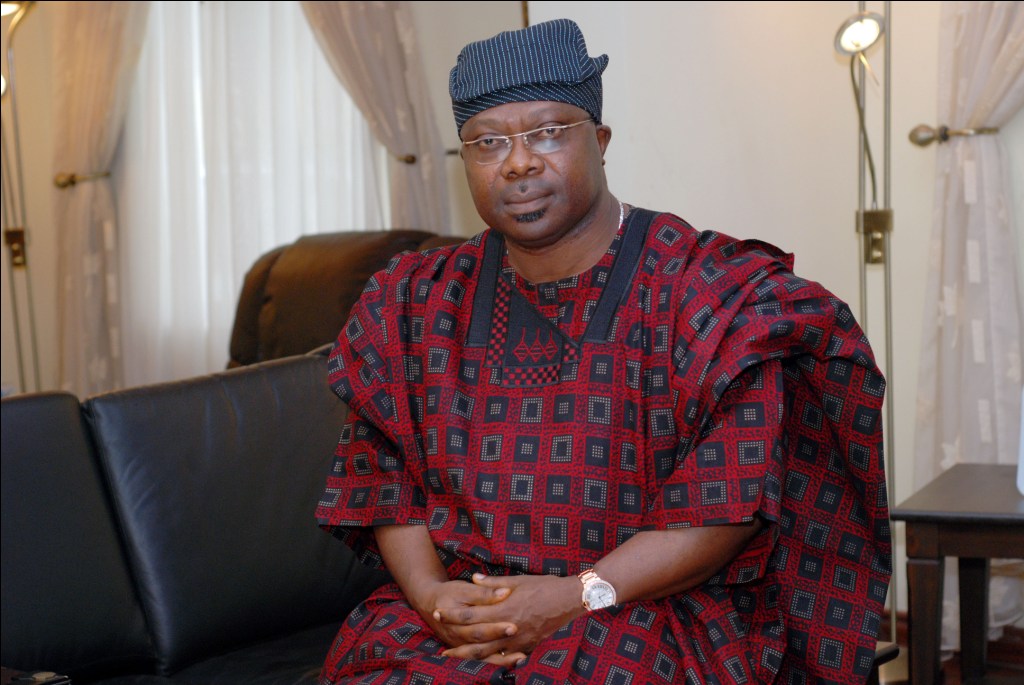Kemi Adeosun, minister of finance, has assured Nigerians that the government’s revenue generation focus will not be a burden to Nigerians, but a drive that will make every naira count.
Adeosun said the collection of revenue for sustainable and economic growth of the country must be a collaborative effort of the three tier of government, reflecting that there is one Nigeria and not a federal, state, and local government.
The minister said this at a retreat themed: ‘Enhancing Revenue Generation For Sustainable Development’, which is being attended by representatives from Lagos, Kano, Jigawa, Edo states.
In her keynote address at the opening ceremony of a two-day national revenue retreat in Kano on Thursday, Adeosun said all revenue due to Nigeria’s government, irrespective of the source, will be collected with “high degree of efficiency, fully receipted and properly accounted for”.
Advertisement
“Nigeria can and must improve its revenue collection efforts. Or revenue to GDP ratio is far lower than that of our peers. Nigeria’s Tax to GDP is only six per cent versus 26 per cent in South Africa and 26 per cent in Tunisia, which is actually a good news as it reflects the opportunity for growth,” she said.
The minister said revenue generating agencies would no longer be allowed to act as autonomous entities outside of the budget, adding that the law says every naira must be paid into the consolidated revenue fund.
”The most important change we have introduced is a re-orientation in the thinking about public money. Discipline and accountability in the spending of public money is a trademark of President Buhari’s-led administration,” she said.
Advertisement
“Making every naira count is a commitment and a policy focus and not a slogan, because citizens will not willingly pay revenues, if the funds are seen to be leaking and been wasted.”
While Kano state has identified 106, Adeosun said the federal government has also identified over 1000 dormant revenue lines, assuring Nigerians that such huge dormant revenue opportunities will be maximised.
ADEOSUN: WE COULD DEPEND ON DEBTS, BUT WE WON’T
She said given Nigeria’s low debt to GDP ratio, the country could borrow its way through need, but the government would rather be disciplined than take huge debts.
Advertisement
“We could have succumbed to the temptation to fund our needs purely by raising debt. However, our approach to debt is a prudent one and we are firm believers in the critical role that revenue plays in mobilising funds,” she said.
“Thus the importance of today’s gathering in planning and developing attainable strategies for revenue mobilisation.
”We have commenced the review and revision of the cost profiles of revenue generating agencies to ensure that maximum generating surpluses are declared and remitted in compliance with the fiscal responsibility act.”
Adeosun also called on lawmakers to review obsolete laws to enhance the ease of revenue generation, saying “where there is a need to review and update obsolete laws, this must be embraced by our Legislators”.
Advertisement
The minister disclosed that oil represents only 13 per cent of gross domestic product but contributes over 70 per cent of government revenue, pointing out that this cannot continue, hence the need to focus on non-oil revenue generation.
Abdullahi Ganduje, governor of Kano, urged state governments in the country to look inwards in their drive to generate revenue.
Advertisement
He noted that the only source of revenue is the internally generated revenue (IGR), considering the state of the Nigerian economy.
Advertisement
1 comments








“Making every naira count is a commitment and a policy focus and not a slogan, because citizens will not willingly pay revenues, if the funds are seen to be leaking and been wasted.” True words. Why should i pay revenues when it wont be properly used.